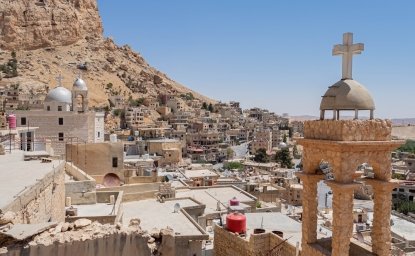#110 Demilitarization and the Institutionalization of Military-Dominated Polities in Latin America

By Alain Rouquié
When direct military power becomes the rule, as is the case in a number of Latin American nations, it is by nature unstable and fragile if not institutionalized. But the type of government which may follow an authoritarian military regime cannot be known in advance. The retreat of the armed forces from power does not necessarily lead to a pluralistic representative system. Indeed, what appears to be a process of demilitarization and return to democracy is often little more than the use of representative procedures to legitimate and consolidate an authoritarian model.
The institutionalization of modern militarism has taken several forms in Latin America. These can be grouped into two dominant tendencies: personalization and legalization. Both models may or may not be coupled with a real opening to democracy or a democratic facade.
The first and rarest case implies the transfer of power to a military leader who imposes himself on his peers and subordinates the armed forces to himself (as executive), preserving nondemocratic structures. In the second case--legalization within a constitutional framework--two methods are possible: a controlled and coercive multiparty system or the creation of a dominant military party. These variants admit of more or less sizable doses of "supervised" democracy, possibly extending to the complete return of civilians to the government.
Democratic restoration depends essentially on the international situation and on internal processes within the armed forces. But the military generally bends to the pressure of political conditions. And the government may very well return to the civilians if the military does not guard its power.

Latin America Program
The Wilson Center’s prestigious Latin America Program provides non-partisan expertise to a broad community of decision makers in the United States and Latin America on critical policy issues facing the Hemisphere. The Program provides insightful and actionable research for policymakers, private sector leaders, journalists, and public intellectuals in the United States and Latin America. To bridge the gap between scholarship and policy action, it fosters new inquiry, sponsors high-level public and private meetings among multiple stakeholders, and explores policy options to improve outcomes for citizens throughout the Americas. Drawing on the Wilson Center’s strength as the nation’s key non-partisan policy forum, the Program serves as a trusted source of analysis and a vital point of contact between the worlds of scholarship and action. Read more

Explore More
Browse Insights & Analysis
Latin American Program Working Paper Series (101-150)


